Afghan Refugees in Indonesia: Forgotten, Stuck, and Silenced
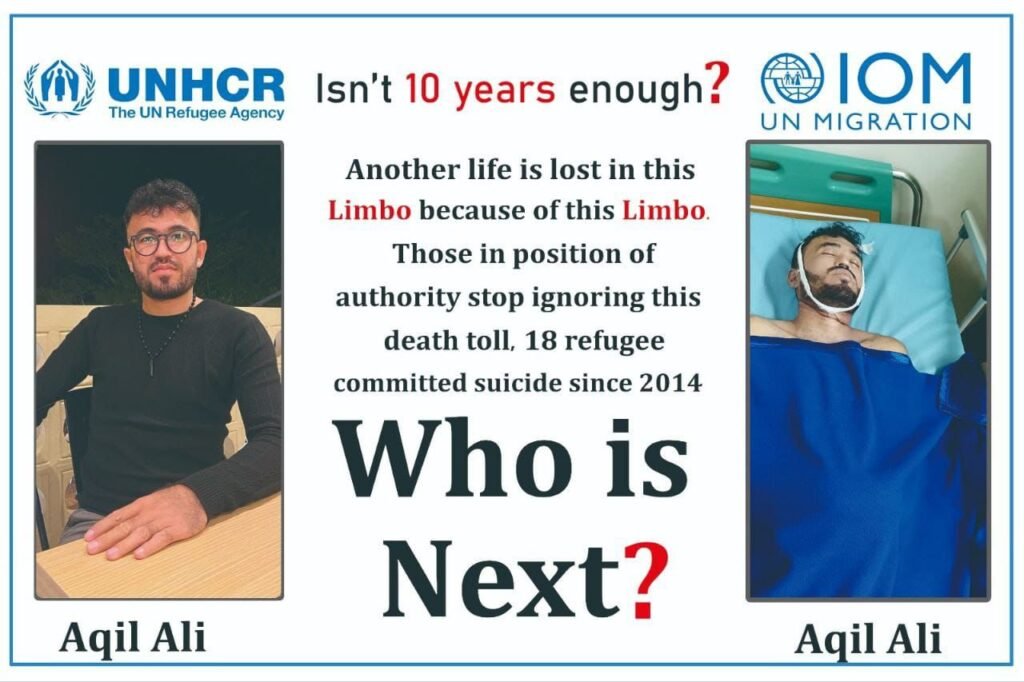
Since 2010, thousands of Afghan refugees—primarily from the persecuted Hazara community—have sought safety in Indonesia. Instead of protection or resettlement, they have faced years of limbo. In 2025, many have now been stuck for over 13 years, living without legal status, work rights, or basic human dignity.
A Crisis Without Visibility
According to a 2023 field report by Bolaq Analysts Network, the Afghan refugee population in Indonesia is:
-
97% Hazara, one of the most historically targeted ethnic groups
-
Over 90% Shia Muslim, many of whom fled religious persecution
-
Trapped in the system for 8 to 13 years without resolution
Children are barred from formal schooling. Adults are prohibited from working. Legal aid is nearly non-existent. Communication is restricted. Some refugees cannot even legally own SIM cards or leave their city without permission.
The conditions have led to deep psychological trauma. At least 17 suicides and multiple self-immolation attempts have been documented. Refugees live in overcrowded rooms, cut off from society, with minimal monthly stipends provided by the International Organization for Migration (IOM) or the United Nations High Commissioner for Refugees (UNHCR).
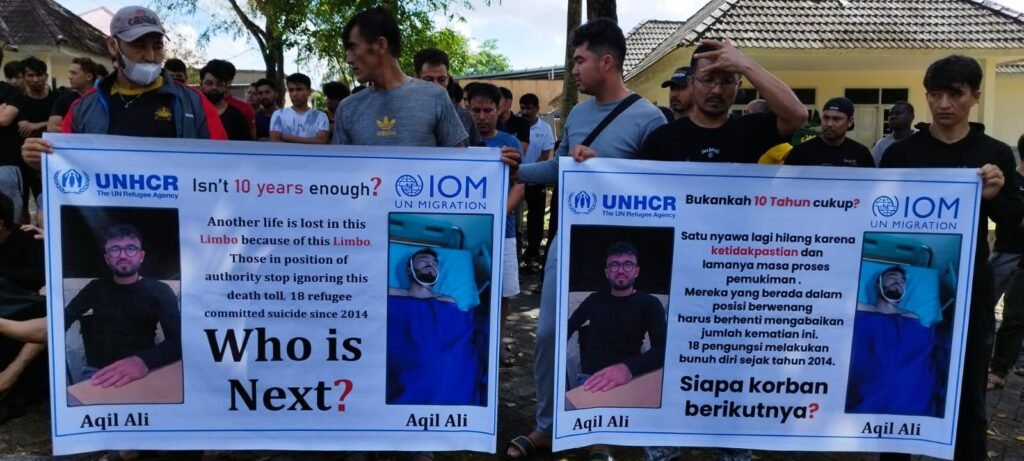
“We Are Like Prisoners”
In desperation, Afghan refugees in Indonesia have staged countless peaceful protests, hunger strikes, and letter campaigns. Some have even sewn their lips shut to make their suffering visible. Despite this, the international response has been muted—humanitarian organizations and resettlement states have failed to act.
As one refugee stated:
“We are like prisoners, but even prisoners know when their sentence ends. We don’t.”
Violations of International Law
The situation of Afghan refugees in Indonesia violates core principles of international law, including:
-
The right to seek asylum (Universal Declaration of Human Rights, Article 14)
-
The right to education (Convention on the Rights of the Child)
-
The right to work and live with dignity (International Covenant on Economic, Social and Cultural Rights)
These rights remain theoretical for the refugees in Indonesia, who are treated as stateless, rightless, and invisible.
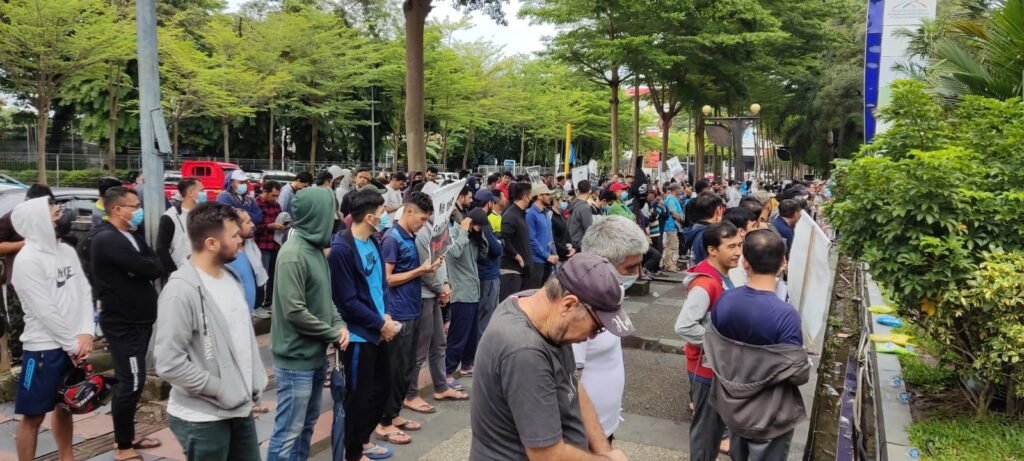
Generation Outside Afghanistan: Our Call
Generation Outside Afghanistan urgently calls upon:
-
UNHCR and IOM to review and reform their refugee management systems in Indonesia
-
Host countries to open safe and accelerated resettlement pathways
-
Indonesian authorities to grant access to work, education, and mobility
-
Donor states and international actors to increase oversight, support, and political will
This is not a logistical problem—it is a humanitarian crisis. And like all such crises, it demands international solidarity, not bureaucratic neglect.
The Time for Action Is Now
Without urgent intervention:
-
More lives will be lost to suicide and despair
-
More children will grow up without access to learning or play
-
And the world will remain complicit in a preventable tragedy
The Afghan refugees in Indonesia are not invisible. They are forgotten—and that is a choice the world can still reverse.
Source:
Bolaq Analysts Network (2023). A Decade in Limbo: The Situation of Afghanistan Refugees in Indonesia.
https://www.bolaq.org/2023/06/a-decade-in-limbo-the-situation-of-afghanistan-refugees-in-indonesia





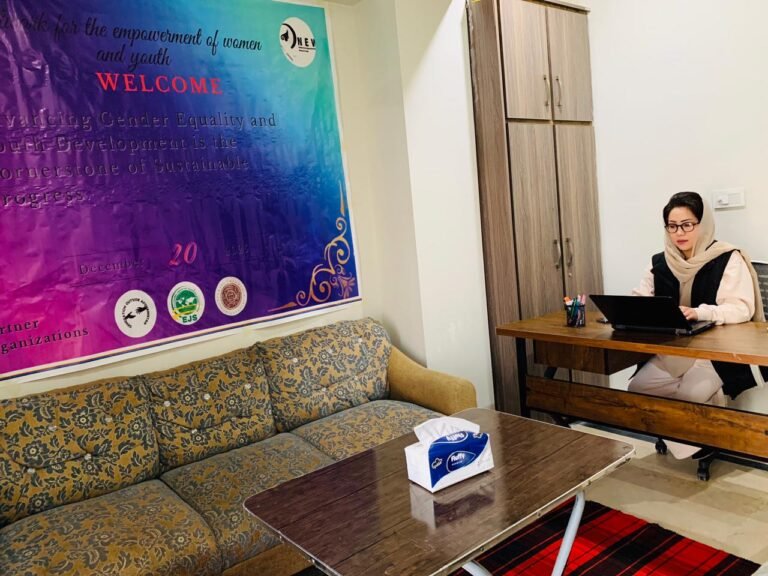
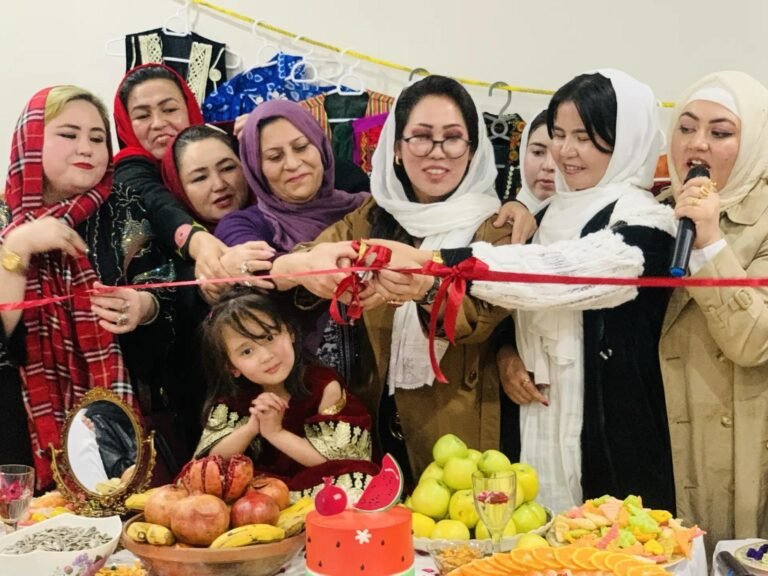

Hi, this is a comment.
To get started with moderating, editing, and deleting comments, please visit the Comments screen in the dashboard.
Commenter avatars come from Gravatar.